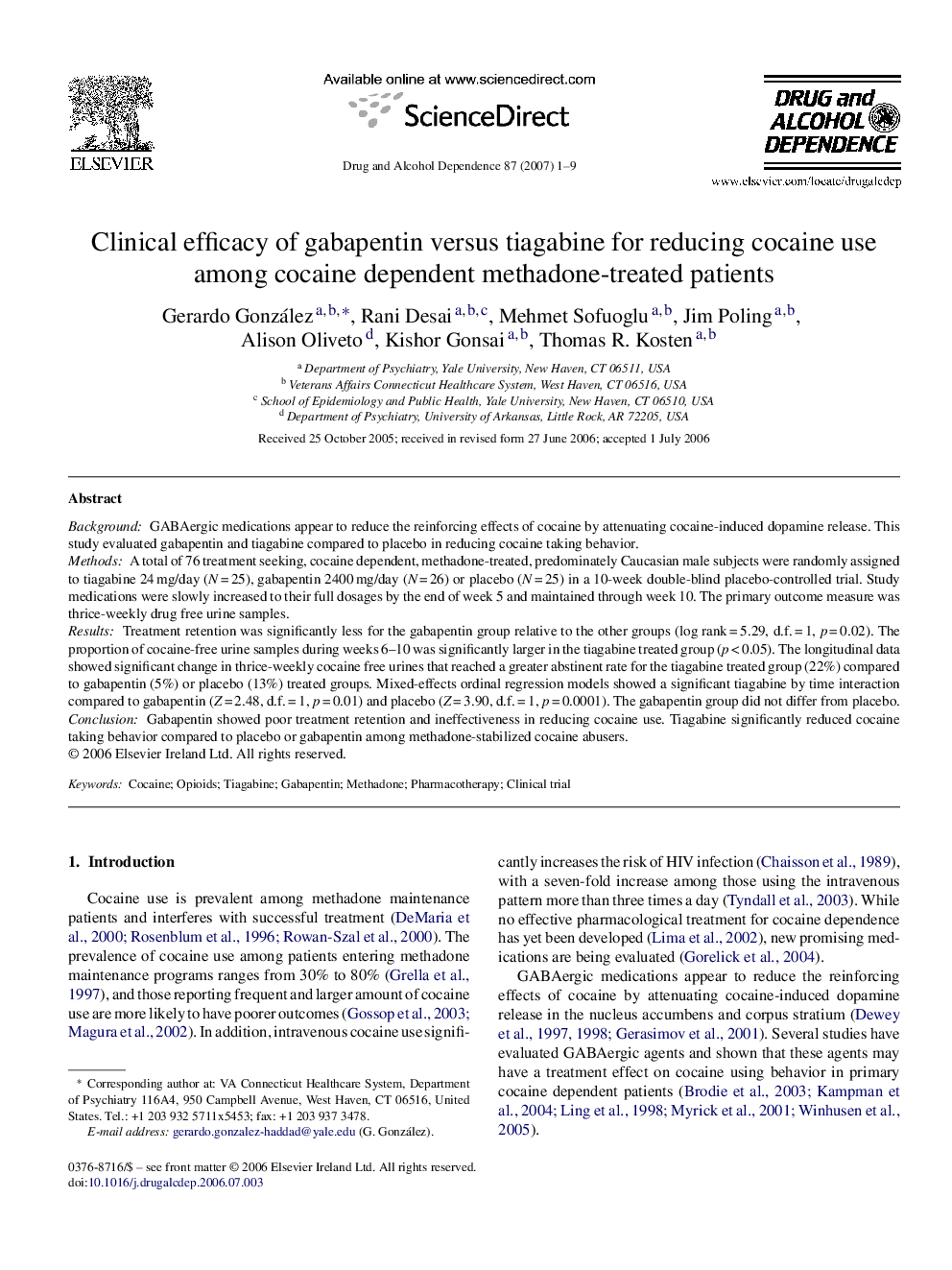| Article ID | Journal | Published Year | Pages | File Type |
|---|---|---|---|---|
| 1071685 | Drug and Alcohol Dependence | 2007 | 9 Pages |
BackgroundGABAergic medications appear to reduce the reinforcing effects of cocaine by attenuating cocaine-induced dopamine release. This study evaluated gabapentin and tiagabine compared to placebo in reducing cocaine taking behavior.MethodsA total of 76 treatment seeking, cocaine dependent, methadone-treated, predominately Caucasian male subjects were randomly assigned to tiagabine 24 mg/day (N = 25), gabapentin 2400 mg/day (N = 26) or placebo (N = 25) in a 10-week double-blind placebo-controlled trial. Study medications were slowly increased to their full dosages by the end of week 5 and maintained through week 10. The primary outcome measure was thrice-weekly drug free urine samples.ResultsTreatment retention was significantly less for the gabapentin group relative to the other groups (log rank = 5.29, d.f. = 1, p = 0.02). The proportion of cocaine-free urine samples during weeks 6–10 was significantly larger in the tiagabine treated group (p < 0.05). The longitudinal data showed significant change in thrice-weekly cocaine free urines that reached a greater abstinent rate for the tiagabine treated group (22%) compared to gabapentin (5%) or placebo (13%) treated groups. Mixed-effects ordinal regression models showed a significant tiagabine by time interaction compared to gabapentin (Z = 2.48, d.f. = 1, p = 0.01) and placebo (Z = 3.90, d.f. = 1, p = 0.0001). The gabapentin group did not differ from placebo.ConclusionGabapentin showed poor treatment retention and ineffectiveness in reducing cocaine use. Tiagabine significantly reduced cocaine taking behavior compared to placebo or gabapentin among methadone-stabilized cocaine abusers.
